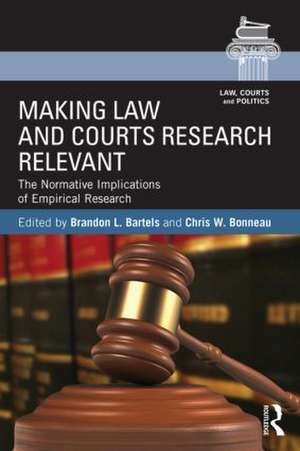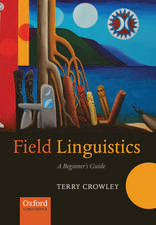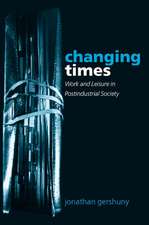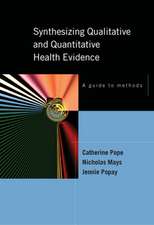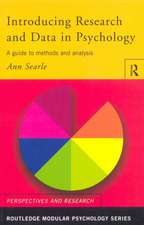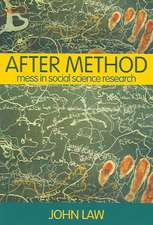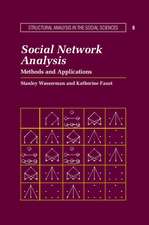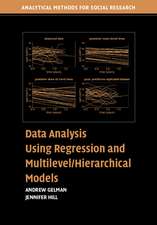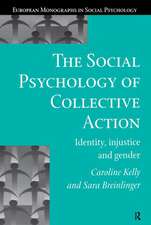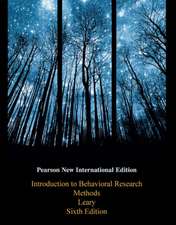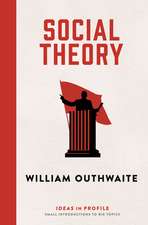Making Law and Courts Research Relevant: The Normative Implications of Empirical Research: Law, Courts and Politics
Editat de Brandon L. Bartels, Chris W. Bonneauen Limba Engleză Paperback – 2 oct 2014
Brandon L. Bartels and Chris W. Bonneau argue that being attuned to the normative implications of one’s work enhances the quality of empirical work, not to mention makes it substantially more interesting to both academics and non-academic practitioners. Their book’s mission is to examine how the normative implications of empirical work in law and courts can be more visible and relevant to audiences beyond academia. Written by scholars of political science, law, and sociology, the chapters in the volume offer ideas on a methodology for communicating normative implications in a balanced, nuanced, and modest manner. The contributors argue that if empirical work is strongly suggestive of certain policy or institutional changes, scholars should make those implications known so that information can be diffused. The volume consists of four sections that respectively address the general enterprise of developing normative implications of empirical research, law and decisionmaking, judicial selection, and courts in the broader political and societal context.
This volume represents the start of a conversation on the topic of how the normative implications of empirical research in law and courts can be made more visible. This book will primarily interest scholars of law and courts, as well as students of judicial politics. Other subfields of political science engaging in empirical research will also find the suggestions made in the book relevant.
| Toate formatele și edițiile | Preț | Express |
|---|---|---|
| Paperback (1) | 445.56 lei 6-8 săpt. | |
| Taylor & Francis – 2 oct 2014 | 445.56 lei 6-8 săpt. | |
| Hardback (1) | 1001.07 lei 6-8 săpt. | |
| Taylor & Francis – 18 sep 2014 | 1001.07 lei 6-8 săpt. |
Preț: 445.56 lei
Nou
Puncte Express: 668
Preț estimativ în valută:
85.28€ • 92.67$ • 71.69£
85.28€ • 92.67$ • 71.69£
Carte tipărită la comandă
Livrare economică 21 aprilie-05 mai
Preluare comenzi: 021 569.72.76
Specificații
ISBN-13: 9781138021921
ISBN-10: 113802192X
Pagini: 260
Ilustrații: 12 black & white tables, 6 black & white line drawings
Dimensiuni: 152 x 229 x 18 mm
Greutate: 0.36 kg
Ediția:1
Editura: Taylor & Francis
Colecția Routledge
Seria Law, Courts and Politics
Locul publicării:Oxford, United Kingdom
ISBN-10: 113802192X
Pagini: 260
Ilustrații: 12 black & white tables, 6 black & white line drawings
Dimensiuni: 152 x 229 x 18 mm
Greutate: 0.36 kg
Ediția:1
Editura: Taylor & Francis
Colecția Routledge
Seria Law, Courts and Politics
Locul publicării:Oxford, United Kingdom
Public țintă
Postgraduate and UndergraduateCuprins
Preface Brandon L. Bartels and Chris W. Bonneau. Part I: The Enterprise of Normative Implications of Empirical Research 1. The Normative Implications of Empirical Research: A Research Agenda Chris W. Bonneau and Brandon L. Bartels 2. Some Ideas on How Political Scientists Can Develop Real World Implications from Their Research (Without Becoming Policy Wonks or Law Professors) Lee Epstein, Jack Knight, and Andrew Martin 3. The Rule of Law as a Law of Rules Barry Friedman Part II: Law and Decisionmaking 4. Judicial Behavior and the Counter-Majoritarian Difficulty Lawrence Baum 5. On Substance and Rhetoric in Constitutional Law Jamal Greene 6. The Role of Courts in the Policy Making Process Ian Turner 7. Racial Logic in Judicial Decision-Making: The Legal Reproduction of White Domination Wendy Moore Part III: Judicial Selection 8. Advice and Consent in a Polarized Era: Time to Pull a Normative Alarm Sarah Binder 9. The Different Manifestations of Representative Drift on U.S. State and Federal Courts Justine D’Elia and Jeffrey Segal 10. The Use and Abuse of Empirical Evidence in Support of Normative Arguments on Judicial Selection Charles Geyh 11. Bridging the Gap Between Science and Politics: The Judicial Elections Controversy Melinda Gann Hall 12. Unpacking the Debate on Judicial Appointments Outside the United States: What Research Might Be Able to Contribute to the Normative Conversation; Lori Hausegger and Troy Riddell Part IV: Courts in the Broader Political and Societal Context 13. The Normative Element of Legitimacy; David Klein 14. Can the U.S. Supreme Court Have Too Much Legitimacy? James Gibson and Michael Nelson 15. Normative Implications of Government Noncompliance with Court Orders David Hausman 16. The Relationship between Diversity on the Bench and the Legitimacy of the U.S. Courts Nancy Scherer 17. Day-to-Day Legitimacy: First Instance Forums Broadly Construed Herbert Kritzer Part V: Conclusion 18. A Path Forward Brandon L .Bartels and Chris W. Bonneau
Notă biografică
Brandon L. Bartels is Associate Professor of Political Science at George Washington University. His research focuses on judicial decision making, the U.S. Supreme Court, and public perceptions of law, courts, and institutional legitimacy. His work has been published in the American Political Science Review, American Journal of Political Science, Journal of Politics, Public Opinion Quarterly, and other outlets.
Chris W. Bonneau is Associate Professor of Political Science at the University of Pittsburgh. His research focuses on judicial selection and has been published in journals such as the American Journal of Political Science, Journal of Politics, and others. He is co-author of In Defense of Judicial Elections and Strategic Behavior and Policy Choice on the U.S. Supreme Court.
Chris W. Bonneau is Associate Professor of Political Science at the University of Pittsburgh. His research focuses on judicial selection and has been published in journals such as the American Journal of Political Science, Journal of Politics, and others. He is co-author of In Defense of Judicial Elections and Strategic Behavior and Policy Choice on the U.S. Supreme Court.
Recenzii
"The increasingly challenging public environment for social scientific research often compels scholars to draw policy and normative conclusions from their work. Doing so thoughtfully and carefully, however, is its own challenge. Bartels and Bonneau have assembled a veritable "who's who" in political science, law, and other fields to tackle this challenge head-on. The series of essays that make up this valuable collection offer both explicit advice and valuable examples for engaging with broader audiences. It should be required reading for scholars (new and old) who are grappling with the prescriptive aspects of their empirical work, and how best to connect with those outside the academy. "—Christopher Zorn, Pennsylvania State University
"Through systematic research, scholars have amassed a great deal of insight into the operations, decision-making, and consequences of the judicial system. Ironically, there is relatively little conversation between the researchers, who study the courts, and the policy makers, who manage them. Why? Bartels and Bonneau have assembled an impressive cast of political scientists and legal scholars to address this question --- and to offer some possible solutions. Both academics and governmental officials will benefit from reading this highly original and important book."—Kevin McGuire, University of North Carolina at Chapel Hill
"Crisis can be opportunity. Recent efforts to cut funding for social science research provides the stimulus for this fresh and important examination of the growing gap between the supposedly value-neutral research on law and courts produced by the social sciences and the deeply normative and prescriptive analysis of the legal academy. Each badly needs to learn from the other. This volume demonstrates this divide is broad and deep – but it also provides more than a few steps on the long and much needed road to rigor and relevance."—Gordon Silverstein, Assistant Dean, Yale Law School
"Through systematic research, scholars have amassed a great deal of insight into the operations, decision-making, and consequences of the judicial system. Ironically, there is relatively little conversation between the researchers, who study the courts, and the policy makers, who manage them. Why? Bartels and Bonneau have assembled an impressive cast of political scientists and legal scholars to address this question --- and to offer some possible solutions. Both academics and governmental officials will benefit from reading this highly original and important book."—Kevin McGuire, University of North Carolina at Chapel Hill
"Crisis can be opportunity. Recent efforts to cut funding for social science research provides the stimulus for this fresh and important examination of the growing gap between the supposedly value-neutral research on law and courts produced by the social sciences and the deeply normative and prescriptive analysis of the legal academy. Each badly needs to learn from the other. This volume demonstrates this divide is broad and deep – but it also provides more than a few steps on the long and much needed road to rigor and relevance."—Gordon Silverstein, Assistant Dean, Yale Law School
Descriere
Brandon L. Bartels and Chris W. Bonneau argue that being attuned to the normative implications of one’s work enhances the quality of empirical work, not to mention makes it substantially more interesting to both academics and non-academic practitioners. Their book’s mission is to examine how the normative implications of empirical work in law and courts can be more visible and relevant to audiences beyond academia. Written by scholars of political science, law, and sociology, the chapters in the volume offer ideas on a methodology for communicating normative implications in a balanced, nuanced, and modest manner.
